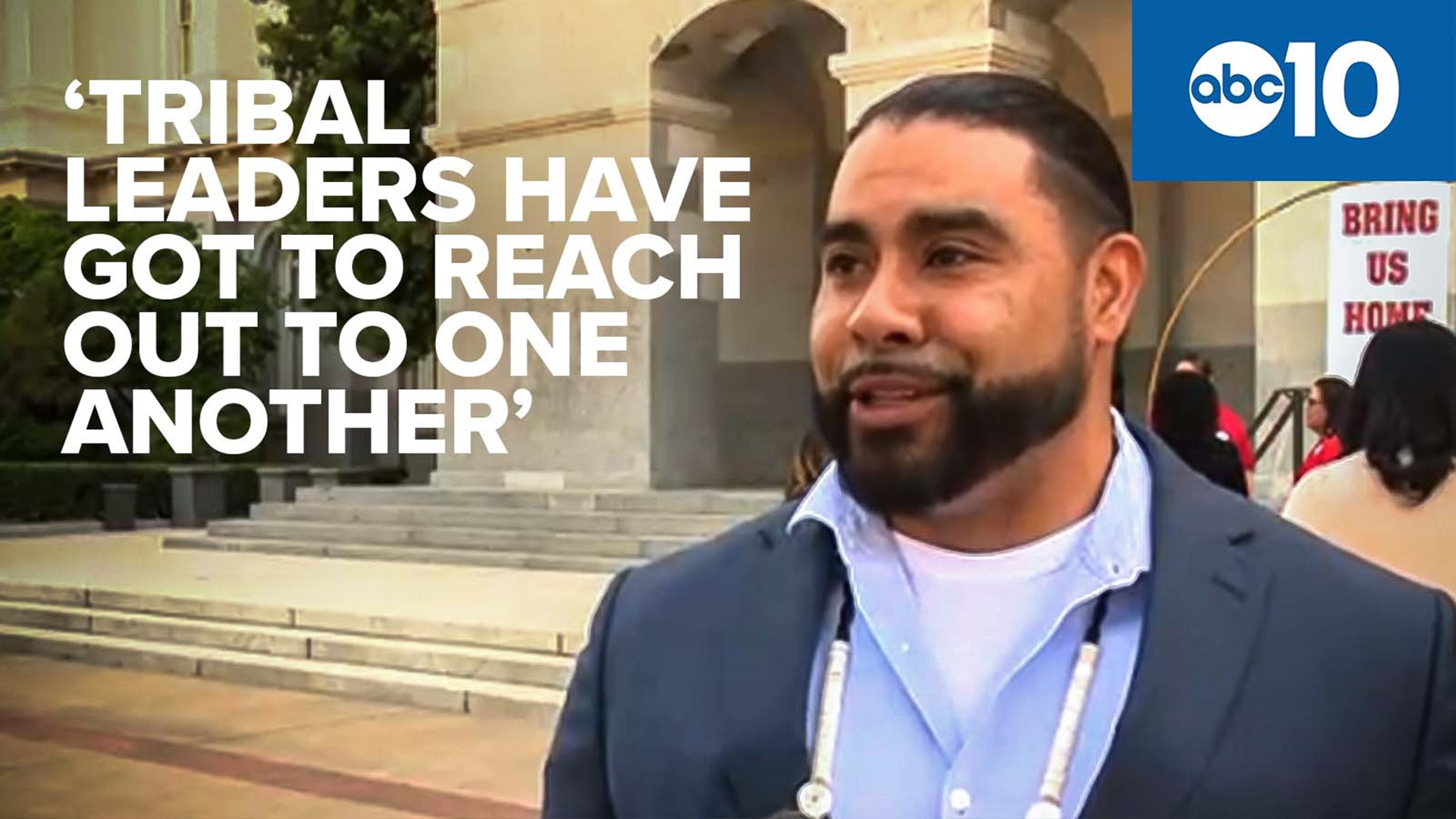SACRAMENTO, Calif. — May 5 marks National Missing and Murdered Indigenous Persons Awareness Day. The day hits close to home for many people in California, the state with the largest Native American population in the U.S.
"Missing and murdered Indigenous persons is not something that most people know about, and it's a sad reality that over 1,000 Indigenous people nationwide go missing or are murdered every year. That's happened year after year for decades," said Attorney General Rob Bonta.
On Wednesday, Bonta joined local tribal leaders, advocates and officials from the Department of Justice at the Capitol to discuss the efforts made to reduce and solve violence towards Native American women and girls.
"On some reservations, homicide rates are more than 10 times the national average," said Assemblymember James Ramos.
"The fact that it's been going on for generations and it continues to go on, it's bad. It's not measurable, I would say," said Jesus Tarango, Wilton Rancheria's Tribal Chair.
The state is currently in year one of a five year plan implementing Assembly Bill 3099, authored by Ramos. The bill helps invest $5 million into guidance, training and support on how to address crime on tribal lands as well as improving data collection and collaboration with law enforcement agencies.
"There's 111 fairly recognized tribes here in California. I think a lot of us are brother/sister tribes. I really think tribal leaders have got to reach out to one another and to bring that awareness and even have those conversations about 'How can we protect this region of land,'" Tarango said.
In 2020, the National Information Crime Center reported nearly 5,300 cases of missing Indigenous women, but officials say the numbers are likely much higher since not all crimes are reported or because some victims are misclassified under other ethnicities.
"The tribal leaders are in pain and they have experienced years and decades of trauma when it comes to missing and murdered Indigenous persons — and they want action now, rightfully, and we want action now," Bonta said. "We have a lot of folks working urgently to identify the right solutions. It can't be any solution. It has to be the right solution and we're working urgently to get there."
WATCH ALSO:



















